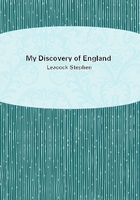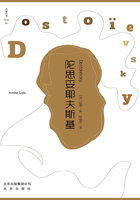Ancient Greek philosophy was divided into three sciences: physics, ethics, and logic. This division is perfectly suitable to the nature of the thing; and the only improvement that can be made in it is to add the principle on which it is based, so that we may both satisfy ourselves of its completeness, and also be able to determine correctly the necessary subdivisions.
All rational knowledge is either material or formal: the former considers some object, the latter is concerned only with the form of the understanding and of the reason itself, and with the universal laws of thought in general without distinction of its objects.
Formal philosophy is called logic. Material philosophy, however, has to do with determinate objects and the laws to which they are subject, is again twofold; for these laws are either laws of nature or of freedom. The science of the former is physics, that of the latter, ethics; they are also called natural philosophy and moral philosophy respectively.
Logic cannot have any empirical part; that is, a part in which the universal and necessary laws of thought should rest on grounds taken from experience; otherwise it would not be logic, i.e., a canon for the understanding or the reason, valid for all thought, and capable of demonstration. Natural and moral philosophy, on the contrary, can each have their empirical part, since the former has to determine the laws of nature as an object of experience; the latter the laws of the human will, so far as it is affected by nature: the former, however, being laws according to which everything does happen; the latter, laws according to which everything ought to happen. Ethics, however, must also consider the conditions under which what ought to happen frequently does not.
We may call all philosophy empirical, so far as it is based on grounds of experience: on the other band, that which delivers its doctrines from a priori principles alone we may call pure philosophy. When the latter is merely formal it is logic; if it is restricted to definite objects of the understanding it is metaphysic.
In this way there arises the idea of a twofold metaphysic- a metaphysic of nature and a metaphysic of morals. Physics will thus have an empirical and also a rational part. It is the same with Ethics; but here the empirical part might have the special name of practical anthropology, the name morality being appropriated to the rational part.
All trades, arts, and handiworks have gained by division of labour, namely, when, instead of one man doing everything, each confines himself to a certain kind of work distinct from others in the treatment it requires, so as to be able to perform it with greater facility and in the greatest perfection. Where the different kinds of work are not distinguished and divided, where everyone is a jack-of-all-trades, there manufactures remain still in the greatest barbarism. It might deserve to be considered whether pure philosophy in all its parts does not require a man specially devoted to it, and whether it would not be better for the whole business of science if those who, to please the tastes of the public, are wont to blend the rational and empirical elements together, mixed in all sorts of proportions unknown to themselves, and who call themselves independent thinkers, giving the name of minute philosophers to those who apply themselves to the rational part only- if these, I say, were warned not to carry on two employments together which differ widely in the treatment they demand, for each of which perhaps a special talent is required, and the combination of which in one person only produces bunglers. But I only ask here whether the nature of science does not require that we should always carefully separate the empirical from the rational part, and prefix to Physics proper (or empirical physics)a metaphysic of nature, and to practical anthropology a metaphysic of morals, which must be carefully cleared of everything empirical, so that we may know how much can be accomplished by pure reason in both cases, and from what sources it draws this its a priori teaching, and that whether the latter inquiry is conducted by all moralists (whose name is legion), or only by some who feel a calling thereto.
As my concern here is with moral philosophy, I limit the question suggested to this: Whether it is not of the utmost necessity to construct a pure thing which is only empirical and which belongs to anthropology? for that such a philosophy must be possible is evident from the common idea of duty and of the moral laws. Everyone must admit that if a law is to have moral force, i.e., to be the basis of an obligation, it must carry with it absolute necessity; that, for example, the precept, "Thou shalt not lie," is not valid for men alone, as if other rational beings had no need to observe it; and so with all the other moral laws properly so called; that, therefore, the basis of obligation must not be sought in the nature of man, or in the circumstances in the world in which he is placed, but a priori simply in the conception of pure reason; and although any other precept which is founded on principles of mere experience may be in certain respects universal, yet in as far as it rests even in the least degree on an empirical basis, perhaps only as to a motive, such a precept, while it may be a practical rule, can never be called a moral law.















